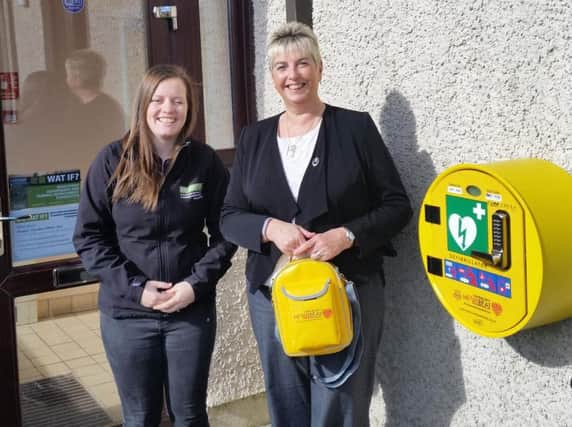Don't keep community defibrillators a secret!


She is backing the Scottish Ambulance Service Registration to Resuscitation campaign, appealing to communities to register potentially life-saving public access defibrillators on its dedicated website.
“Public access defibrillators can be found all over Scotland and are vital pieces of equipment in the crucial early minutes following a cardiac arrest before an ambulance arrives," said Councillor McClymont.
Advertisement
Hide AdAdvertisement
Hide Ad“There is currently no legal obligation to register defibrillators, which is why the Scottish Ambulance Service is asking people to ensure they know where these are, so when someone calls 999 they will know where the nearest defibrillator is if it is required.
“I am encouraging leisure facilities, schools, libraries, community centres and other public places with defibrillators in my constituency to register their devices on the Scottish Ambulance Service’s website.
“Everyone else can get involved too by asking whenever they see a defibrillator if it has been registered."
And Catherine has already encouraged one community organisation to register life-saving equipment.
Advertisement
Hide AdAdvertisement
Hide AdWATIF, who have recently in partnership with Community Heartbeat Trust installed defibrillators in the Woolfords and Tarbrax area, with another in the pipeline for Auchengray, were not aware of the register until Councillor McClymont brought it to their notice.
Launching its Registration to Resuscitation campaign, the service’s national resilience manager, Murray McEwan, said, “We are grateful to have Councillor McClymont behind our campaign as we know she works closely with community groups, projects and other organisations in Clydesdale North.
“When someone experiences a cardiac arrest they are unconscious and not breathing, or not breathing normally, and their life is in immediate danger, which is why these defibrillators are so important.
“If we know where defibrillators are in every community, our call handlers may then be able to direct bystanders to a defibrillator in the event of somebody experiencing a cardiac arrest and talk them through action to take."